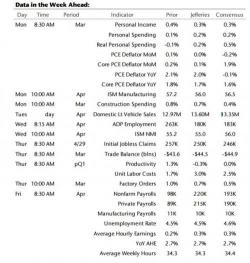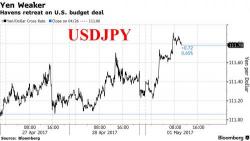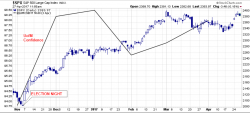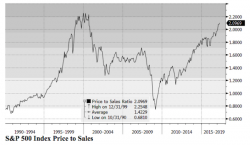Key Events In The Coming Busy Week: FOMC, Payrolls, 131 S&P Companies Report

Besides the upcoming FOMC meeting on May 2-3, and French & Italian politics - the decisive runoff round of the French election takes place this Sunday - this week's releases are dominated by US payrolls expected to come around 170k. The busy release calendar continues with Norges bank and RBA meetings as well as global manufacturing PMIs.



